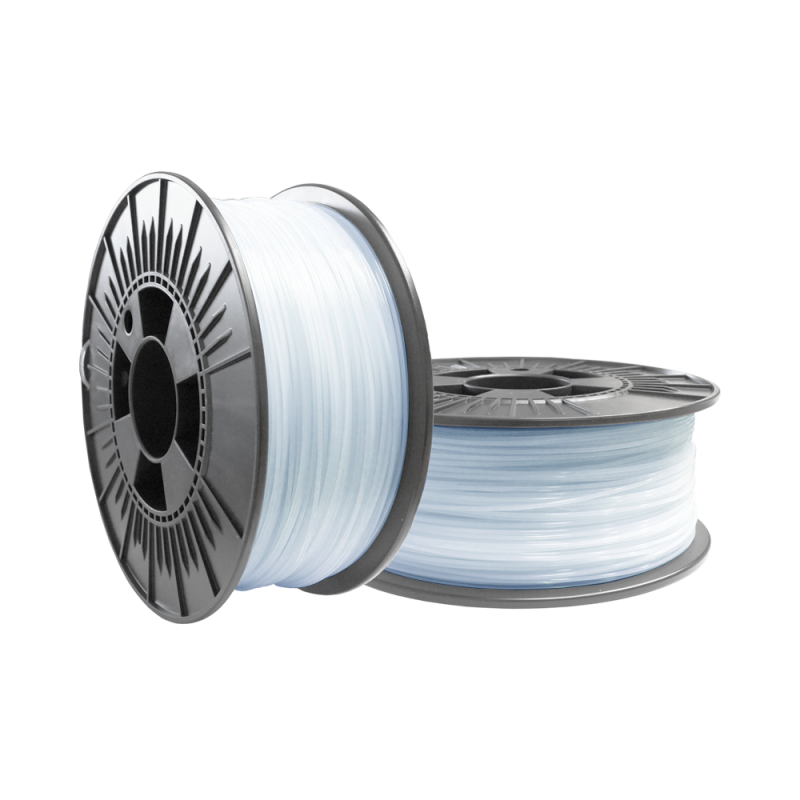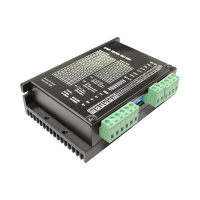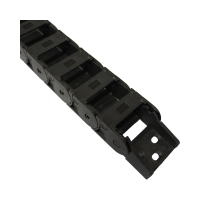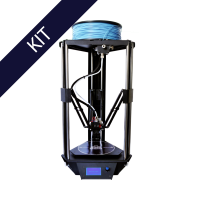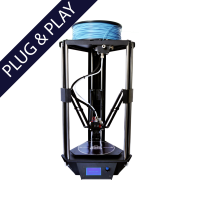PLA Premium 1.75mm Black Light 1kg
1Kg of PLA Premium 1.75mm Black Light
Indicated wieght: actual amount of printable material.
Indicated wieght: actual amount of printable material.
Out of stock
Need some help to chose your filament? Take a look at this link "Everything about... THE FILAMENTS"
________________________
Our PLA Black Light Premium reflects black light. It is a tough, easy to use high grade PLA type of filament, ideal for 3D printing. Slightly modified, the filament
retains the typical features of PLA, but makes it tougher and less brittle. Due to a low shrinkage factor our PLA Premium will not
deform after cooling. Poly Lactic Acid is a biodegradable plastic made from renewable natural resources and one of the
most popular materials for 3D printing.
Features:
• Reflects black light
• Tougher and less brittle compared to regular PLA
• Easy to print at low temperature
• Low warping
• Biodegradable
• Limited smell
________________________
Our PLA Black Light Premium reflects black light. It is a tough, easy to use high grade PLA type of filament, ideal for 3D printing. Slightly modified, the filament
retains the typical features of PLA, but makes it tougher and less brittle. Due to a low shrinkage factor our PLA Premium will not
deform after cooling. Poly Lactic Acid is a biodegradable plastic made from renewable natural resources and one of the
most popular materials for 3D printing.
Features:
• Reflects black light
• Tougher and less brittle compared to regular PLA
• Easy to print at low temperature
• Low warping
• Biodegradable
• Limited smell
| Size | Ø | Tolerance Roundness |
|---|---|---|
| 1,75mm | ± 0,05mm | ≥ 95% |
| 2,85mm | ± 0,10mm | ≥ 95% |
| Description | Testmethod | Typical value |
|---|---|---|
| Specific gravity | ASTM D1505 | 1,24 g/cc |
| MFI | - | 6,0 g/10 min |
| Tensile strength | ASTM D882 | 110 MPa (MD) 145 MPa (TD) |
| Elongation at break | ASTM D882 | 160% (MD) 100% (TD) |
| Tensile modulus | ASTM D882 | 3310 MPa (MD) 3860 Mpa (TD) |
| Impact Strength | - | 7,5 KJ/m² |
| Description | Testmethod | Typical value |
|---|---|---|
| Printing temperature | - | 180-210°C |
| Melting temperature | - | 210°C ± 10°C |
| Melting point | ASTM D3418 | 145-160°C |
| vicat softening temperature | ISO 306 | ± 60°C |

